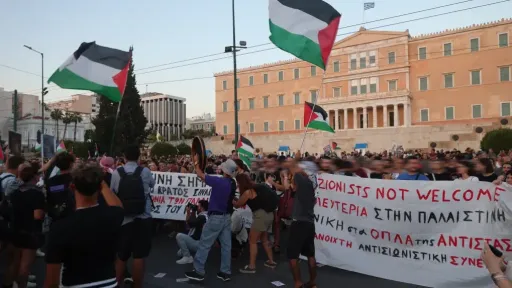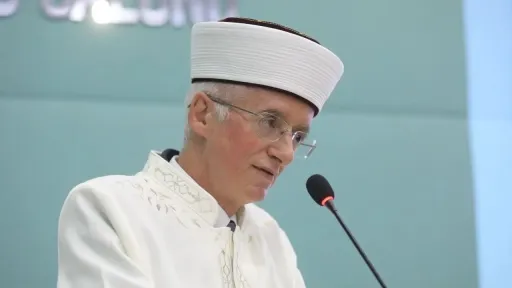Black wreath laid at Greek Consulate in Edirne on 81st anniversary of Çameria Massacre

A black wreath was laid in front of the Greek Consulate in Edirne on Thursday to mark the 81st anniversary of the Çameria massacre, which targeted ethnic Albanians in northwestern Greece during World War II.
Members of various NGOs, led by the Balkan Rumeli Turks Confederation, gathered in front of the consulate holding Turkish flags and carrying a wreath bearing the message: "We have not forgotten the Çameria genocide."
Speaking on behalf of the group, Mehmet Kamar emphasized that a major massacre took place in the Çameria region 81 years ago and called on Greece to recognize its historical responsibility for atrocities committed in Tripolitsa, the Peloponnese, and Çameria.
“The Albanian Parliament officially recognized June 27 as Çameria Genocide Remembrance Day in 1994. We are here today to show that we have not forgotten what happened in Çameria—and we will not let it be forgotten,” said Kamar.
He urged Greek officials to stop deflecting and face their own historical record, stating, “Instead of issuing unjust and hateful statements against Turkey, Greek officials must confront their own past.”
Kamar concluded his remarks by reiterating their commitment to peace:
“As a civil society organization that embraces Atatürk’s principle of ‘Peace at home, peace in the world,’ we are determined to build a future grounded in peace—not hatred—for our region and the world.”
What Happened in Çameria?
Çameria refers to a historical region stretching from Ioannina to Preveza in northwestern Greece, historically home to a large Albanian population. In 1913, following the Balkan Wars, Çameria was ceded to Greece under the Treaty of London, despite its predominantly Muslim Albanian population—estimated at 83,000 in the 1910 Ottoman census.
Between June 1944 and March 1945, forces under Greek General Napoleon Zervas carried out systematic massacres and expulsions of the Çameria Albanians. The campaign led to the deaths of 2,900 men, 214 women, and 96 children. Reports also documented 745 rapes and the destruction of 68 villages and over 5,800 homes.
As a result, an estimated 35,000 Albanians were forced to flee to neighboring Albania.







